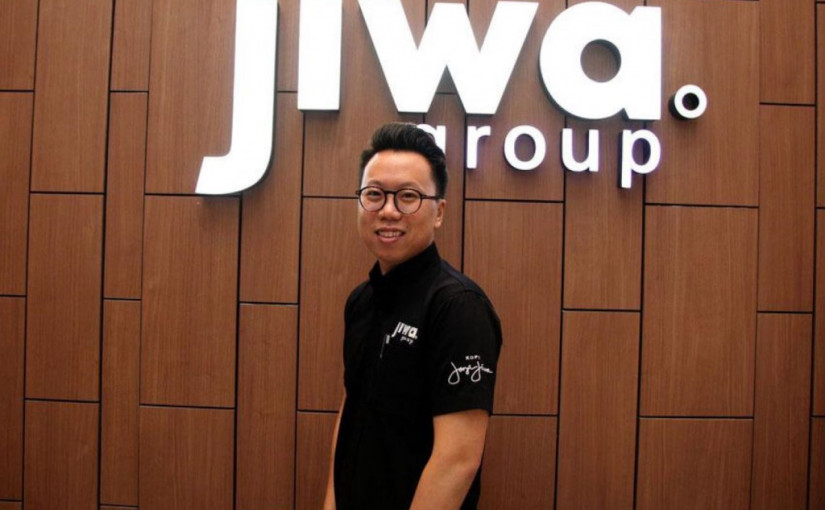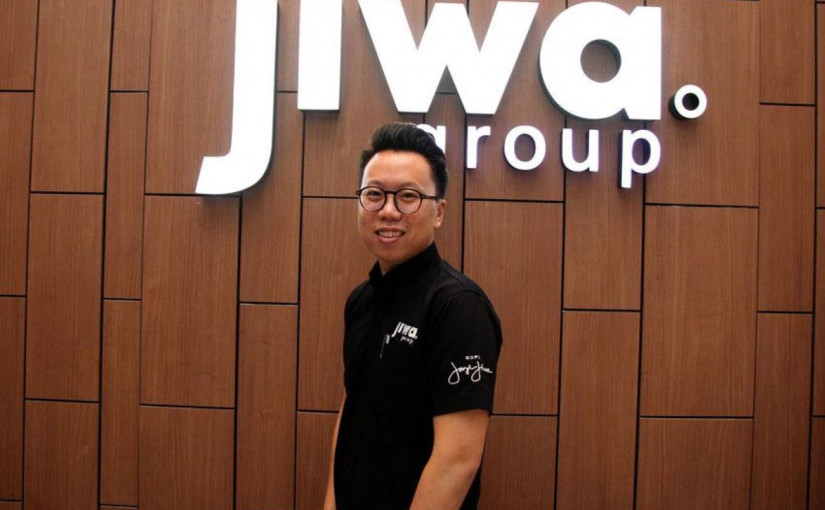Coffeeshop business becomes very mushrooming for the past few years. More brands are coming and the competition rate is getting higher than ever. Eventually, each player is required to create innovation for loyal customers. Are you expecting some tips?
In order to provide you with some answers, #SelasaStartup has invited Janji Jiwa’s Founder & CEO, Billy Kurniawan as a speaker. Janji Jiwa is a coffeeshop with grab-and-go concept. Since its first debut two years ago, Janji Jiwa has expanding its branches into 800 outlets throughout Indonesia, thanks to the partnership program. Here’s an exerpt of the session:
Clarify the motive, is it passion or just following the “hype”
For some young entrepreneurs who grow interests in the coffee industry, he suggests them to clarify whether this is a passion or just another trend-following act. He thought this is one essential foundation before they can step further into the next process, such as going on research, supplier-hunting, exploring ways of roasting, to the pricing area.
When you follow your passion, you can have special added value to a certain brand. The coffee alone, he continued, still has large opportunity for exploration.
Simply put, coffee is one of Indonesia’s main commodity with such great followers. Everybody, of all ages, social status, gender, can have a certain market for each brand.
“Therefore, discover the identity first and do market research for the right target. Coffee needs personal attachment, a philosophic story. Janji Jiwa, it’s all about passion, we present for those in need for a company to achieve their passion,” he said.
If only for the trend, without particularly strong passion in the coffee industry, it’ll be harder for brand to stay in the game. In fact, the target is to compete among brands and provide an added value other competitors’ can’t afford.
Regarding competition, if you only desired to win, it’ll only lead to a price war. The quality and other components must be put aside in order to provide a cup of cheap coffee.
Create a product-market fit
In the food and beverages (FnB) industry, a product-market fit is required to produce a result to meet consumer’s demand. Billy recommends us to use the five senses. In terms of sight, make sure the logo represented the inner brand.
In terms of taste, this should be a highlight since the tongue never lies. Next, the touch of its packaging should be made simple, nothing too fancy.
Fourth, the smell tells everything about the coffee’s “aroma”. It’s a key to brew a good coffee for we talk about quality. Last, the hearing about one’s brand acceptance by its consumer, the word-of-mouth will surely travel fast.
“For the new brand, it’s better to first find the market, simply by creating a survey through samples.”
Janji Jiwa always held a routine internal survey for every new product to launch. There will be results on consumer response, is it good-to-go or require improvements.
Once you gain profit, he also suggests focusing on growth. The extra money should turn into investment until the brand sustainable enough.
However, he said to be the leading player is very important and the market competition for the grab-and-go concept is more intense.
No such thing as zero cost, but minimal cost applied
In order to start a new business, Billy highlights the fact that no such thing as zero cost. The coffee business, if adjusted to the target consumer, requires equipment that is not cheap. It’s a form of long-term investment.
He said, Janji Jiwa was founded with an initial capital of Rp70 million. The nominal has included the rental fee for the first outlet at ITC Kuningan, Jakarta. Back then, he wanted to prove whether the hypothesis of grab-and-go coffee shops could really be a real business.
“When you know that the outlet has high traffic, it must do continuous improvement. This means investing in better tools, therefore, consumers not disappointed. ”
In terms of marketing, Janji Jiwa relies heavily on Instagram as a marketing medium. In order to have strong brand awareness and exposure, but thin capital, he decided to collaborate product barter with local brands.
“Creative marketing is important for it should be able to survive with the current capital. Collaboration with local brands such as product barter is better hence giving money is another cost.”
Penetration through online platform
The grab-and-go coffee shop concept has been very supported by the presence of GrabFood and GoFood for online delivery. Billy told the rate has reached 30% of total bookings every day.
This concept can be further strengthened indeed, once the brand has its own application. However, application alone is not enough. It must provide added value for consumers with some features, such as loyalty programs, nearby locations, free merchandise, and so on. “Janji Jiwa is on to that [for application].”
Moving to adjust trends, he continued, is a way to anticipate that a brand is not only limited to its hype. Therefore, Janji Jiwa has released other vertical products for toasts menu.
“We can make sure the synergy between the two brands [Janji Jiwa and Jiwa Toast] can work. Thus, we create our own toast menu, we didn’t use sweet toppings because there are already too many out there.”
–
Original article is in Indonesian, translated by Kristin Siagian

